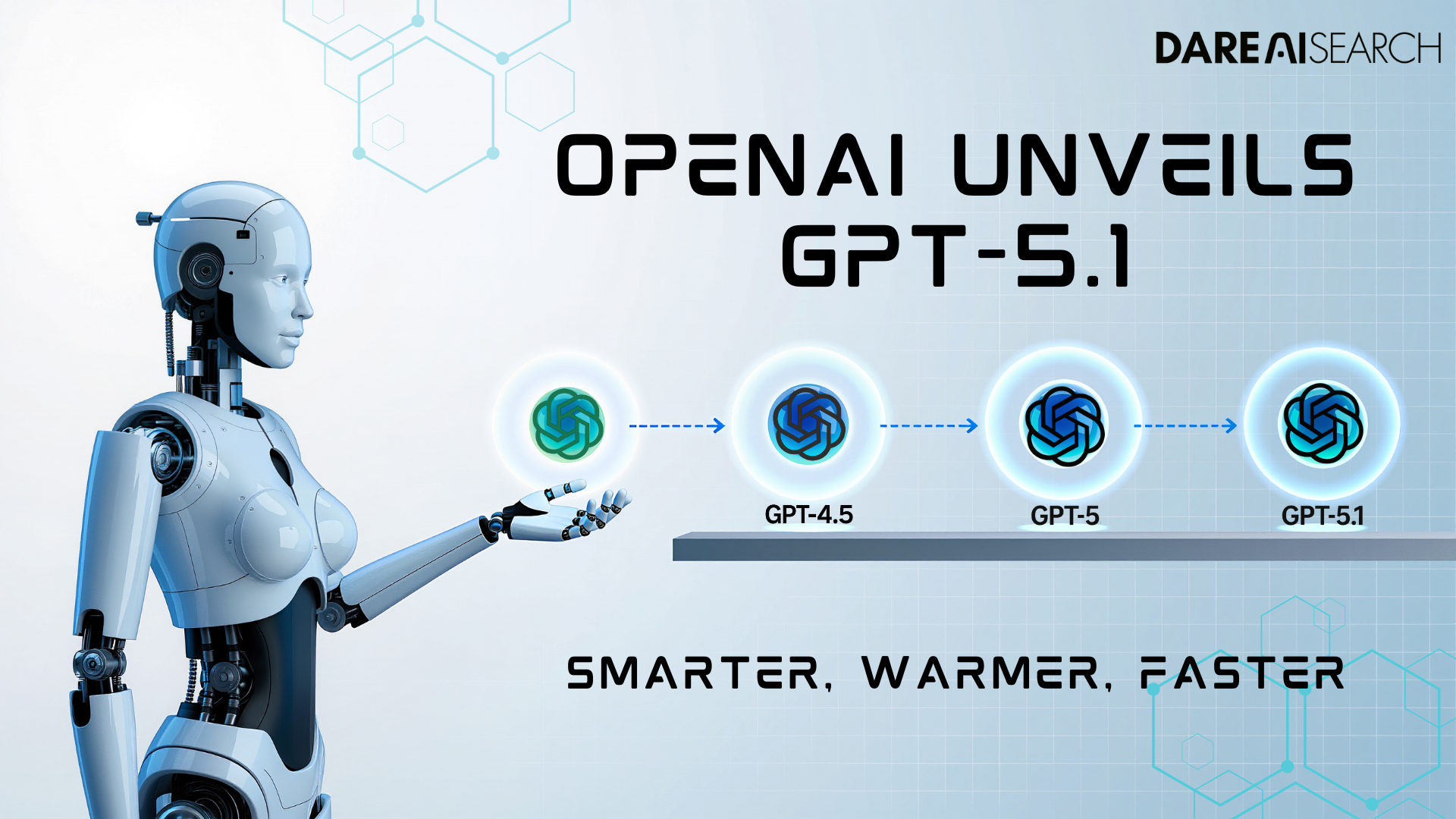
For more than two decades, Search Engine Optimization (SEO) has shaped how online content is created, discovered, and ranked. Keywords, backlinks, metadata, and technical performance have guided visibility on Google and other traditional search platforms. But the digital landscape is undergoing a profound shift — and the release of GPT-5.1 marks a turning point that cannot be ignored.
We are entering the era of Generative Engine Optimization (GEO), where visibility depends less on how content interacts with search algorithms and more on how AI models understand, reference, and recommend information.
GPT-5.1 is not just another upgrade; it represents a fundamental restructuring of how content is surfaced in a world dominated by generative answers. This new paradigm requires a fresh mindset, new content strategies, and a deeper understanding of how large language models (LLMs) process and prioritize information.
From Search Engines to Generative Engines
Search engines rank web pages. That’s the model we’ve lived with for years.
Generative engines — like ChatGPT with GPT-5.1, Google Gemini, and Perplexity — don’t just rank pages; they produce direct, synthesized answers by pulling from multiple sources, evaluating credibility, and generating context-aware explanations.
This means users are no longer clicking 10 links to find an answer.
The generative model is the answer.
As GenAI platforms become default gateways to information, traditional SEO loses dominance. What emerges instead is a new discipline: GEO — Generative Engine Optimization.
What Exactly Is GEO?
GEO focuses on optimizing content so that generative AI models can:
- Understand it
- Trust it
- Reference it
- Reproduce it in their responses
Instead of chasing Google’s algorithm updates, GEO focuses on the knowledge systems of AI models and how they identify credible, relevant, and structured information.
This means brands must now create content that:
✓ Matches natural conversational queries
Instead of optimizing for “Shiva Sati Story explanation,” GEO optimizes for:
“What happened between Shiva and Sati in the Daksha Yagna story?”
✓ Establishes topical authority
Generative engines favor sources that demonstrate deep, consistent expertise on a niche.
✓ Uses entity-rich, structured content
LLMs understand entities (people, places, concepts) better than raw keywords.
✓ Offers clarity, accuracy, and depth
Shallow content gets ignored by generative systems.
GPT-5.1 amplifies this shift by using more advanced reasoning, fact-checking, and multi-modal understanding than previous models.
Why GPT-5.1 Changes Everything
GPT-5.1 represents a leap in how AI comprehends, processes, and generates information. Its impact on GEO comes from several key enhancements:
1. Improved Factual Reasoning
GPT-5.1 uses reinforced factual grounding. This means content that is accurate, well-cited, and structured stands a higher chance of being favored in generated responses.
2. Better Entity Recognition
It understands “who,” “what,” and “where” with greater precision:
- People
- Brands
- Products
- Events
- Topics
If your website clearly defines these entities, GPT-5.1 can more easily reference your content.
3. Multimodal Understanding
GPT-5.1 analyzes text, image, data, and context together.
This makes image-supported blogs, infographics, and structured datasets more GEO-friendly.
4. Prioritization of Authority Signals
Instead of relying only on backlinks (which can be manipulated), GPT-5.1 evaluates:
- Topic depth
- Consistent publishing
- Accuracy of information
- Cross-verified credibility
In short: Authority, not volume, wins in GEO.
5. Contextual Answer Generation
GPT-5.1 can determine:
- Which sources are relevant
- Which sources are trustworthy
- Which explanations are most accurate
That means your content must be crystal clear, deeply informative, and contextually rich to appear in generative responses.
SEO vs GEO — The Core Differences
| SEO | GEO |
|---|---|
| Optimizes for search engines | Optimizes for generative AI |
| Focus on keywords | Focus on entities & semantic meaning |
| Backlinks = authority | Credibility & topic expertise = authority |
| Ranking pages | Being referenced in AI answers |
| Click-based discovery | Answer-based discovery |
| Optimizes website | Optimizes information |
Traditional SEO isn’t dead, but GEO is the new front line for digital visibility.
How Content Must Evolve in the GEO Era
To be discovered in GPT-5.1-powered environments, brands must rethink how they create content.
1. Move from Keyword-Stuffed to Knowledge-Rich Content
AI models reward:
- Depth
- Accuracy
- Clarity
- Logical flow
A single high-quality pillar page is now more valuable than ten weak blogs.
2. Build Topical Authority
Create content that:
- Covers your niche thoroughly
- Answers related questions
- Connects topics through internal linking and structured formatting
Generative engines elevate sources that show consistent expertise.
3. Use Entity-Based Optimization
Mention and define important entities clearly:
- Names
- Concepts
- Locations
- Product attributes
This increases your content’s chances of being recognized and referenced.
4. Provide Structured & Sectioned Content
GPT-5.1 thrives on:
- Headings
- Lists
- Definitions
- Data tables
- FAQs
These help the AI extract and summarize information more precisely.
5. Publish Credible, Evergreen Content
Generative engines do not want viral content; they want reliable content.
Why GEO Matters for Brands, Creators & Businesses
The shift from SEO to GEO is not optional.
For brands:
Visibility is increasingly dependent on how AI models describe your business.
For creators:
Your content must be the one referenced in generative answers.
For marketers:
The playbook for digital discovery is being rewritten.
For businesses:
Search-driven traffic will decline — answer-driven recommendations will rise.
GPT-5.1 is the trigger that accelerates this transition.
The Future of Digital Visibility
We’re witnessing the beginning of a new era — one where users don’t “search” for content; content finds them through generative engines.
As AI becomes the default gateway for information:
- GEO will replace traditional SEO strategies
- Authority will outweigh backlinks
- Entity-rich content will dominate
- High-quality knowledge sources will rise to the top
The brands that adapt early will win the next phase of digital visibility.
GPT-5.1 didn’t just update AI capabilities — it redefined the rules of online discovery.
The question now is simple:
**Will you optimize for search engines…
or generative engines?**
